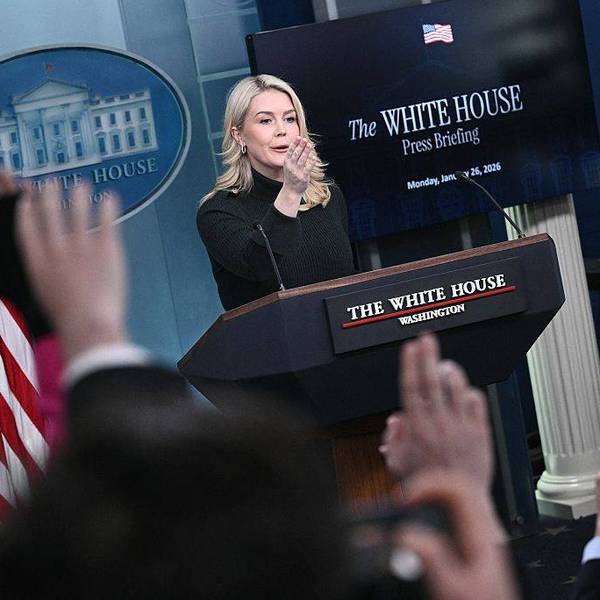CNN's star anchor Anderson Cooper narrates a chaotic street scene
in Port-au-Prince.
A boy is struck in the head by a rock thrown by a looter from a roof. Cooper
helps him to the side of the road, and then realizes the boy is disoriented and
unable to get away. Laying down his digital camera (but still being filmed by
another CNN camera), Cooper picks up the boy and lifts him over a barricade to
safety, we hope.
"We don't know what happened to that little boy,"
Cooper says in his report. "All we know now is, there's blood in
the streets." (To view the CNN story, go to https://www.youtube.com/watch?v=7Unh4v1lFU0.)
This is great television, but it's not great journalism. In fact,
it's irresponsible journalism.
Cooper goes on to point out there is no widespread looting in the city
and that the violence in the scene that viewers have just witnessed appears to
be idiosyncratic. The obvious question: If it's not representative of
what's happening, why did CNN put it on the air? Given that Haitians
generally have been organizing themselves into neighborhood committees to take
care of each other in the absence a functioning central government, isn't
that violent scene an isolated incident that distorts the larger reality?
Cooper tries to rescue the piece by pointing out that while such violence
is not common, if it were to become common, well, that would be bad --
"it is a fear of what might come." But people are more likely to
remember the dramatic images than his fumbling attempt to put the images in
context.
Unfortunately, CNN and Cooper's combination of great TV and bad
journalism are not idiosyncratic; television news routinely falls into the trap
of emphasizing visually compelling and dramatic stories at the expense of
important information that is crucial but more complex.
The
absence of crucial historical and political context describes the
print coverage as well; the facts, analysis, and opinion that U.S.
citizens need to understand
these events are rarely provided. For example, in the past week we've
heard journalists repeat endlessly the observation that Haiti is the
poorest country in the Western Hemisphere. Did it ever occur to editors
to
assign reporters to ask why?
The immediate suffering in Haiti
is the result of a natural disaster, but that suffering is compounded by political
disasters of the past two centuries, and considerable responsibility for those
disasters lies not only with Haitian elites but also with U.S. policymakers.
Journalists have noted that a slave revolt led to the founding of an
independent Haiti in 1804
and have made passing reference to how France's
subsequent demand for "reparations" (to compensate the French for
their lost property, the slaves) crippled Haiti economically for more than a
century. Some journalists have even pointed out that while it was a slave
society, the United States
backed France
in that cruel policy and didn't recognize Haitian independence until the
Civil War. Occasional references also have been made to the 1915 U.S. invasion under the "liberal"
Woodrow Wilson and an occupation that lasted until 1934, and to the support the
U.S.
government gave to the two brutal Duvalier dictatorships (the infamous
"Papa Doc" and "Baby Doc") that ravaged the country
from 1957-86. But there's little discussion of how the problems of
contemporary Haiti
can be traced to those policies.
Even
more glaring is the absence of discussion of more recent
Haiti-U.S. relations, especially U.S. support for the two coups
(1991 and 2004) against a democratically elected president.
Jean-Bertrand Aristide
won a stunning victory in 1990 by articulating the aspirations of
Haiti's poorest citizens, and his populist
economic program irritated both Haitian elites and U.S. policy-makers.
The first Bush
administration nominally condemned the 1991 military coup but gave
tacit
support to the generals. President Clinton eventually helped Artistide
return
to power Haiti in 1994, but
not until the Haitian leader had been forced to capitulate to
business-friendly
economic policies demanded by the United States. When Aristide won
another election in 2000 and continued to advocate for ordinary
Haitians, the
second Bush administration blocked crucial loans to his government and
supported the violent reactionary forces attacking Aristide's party.
The
sad conclusion to that policy came in 2004, when the U.S. military
effectively kidnapped
Aristide and flew him out of the country. Aristide today lives in South
Africa, blocked by the United States from returning to his
country, where he still has many supporters and could help with relief
efforts.
How many people watching Cooper's mass-mediated heroism on CNN
know that U.S. policy makers have actively undermined Haitian democracy and
opposed that country's most successful grassroots political movement?
During the first days of coverage of the earthquake, it's understandable
that news organizations focused on the immediate crisis. But more than a week
later, what excuse do journalists have?
Shouldn't TV pundits demand that the United States accept responsibility
for our contribution to this state of affairs? As politicians express concern
about Haitian poverty and bemoan the lack of a competent Haitian government to
mobilize during the disaster, shouldn't journalists ask why they have not
supported the Haitian people in the past? When Bill Clinton and George W. Bush
are appointed to head up the humanitarian effort, should not journalists ask
the obvious, if impolite, questions about those former presidents'
contributions to Haitian suffering?
When mainstream journalists dare to mention this political history,
they tend to scrub clean the uglier aspects of U.S.
policy, absolving U.S.
policymakers of responsibility in "the star-crossed relationship"
between the two nations, as a Washington Post reporter put it. When news reporters
explain away Haiti's problems as a result of some kind of intrinsic
"political dysfunction," as the Post reporter termed it, then
readers are more likely to accept the overtly reactionary arguments of op/ed
writers who blame Haiti's problems of its "poverty culture"
(Jonah Goldberg, Los Angeles Times) or "progress-resistant cultural
influences" rooted in voodoo (David Brooks, New York Times).
One can learn more by monitoring the independent media in the United
States ("Democracy Now," for example, has done extensive reporting) or
reading the foreign press (such as this political analysis by Peter Hallward in
the British daily "The Guardian").
When will journalists in the U.S.
corporate commercial media provide the same kind of honest accounting?
The news media, of course, have a right to make their own choices about
what to cover. But we citizens have a right to expect more.



